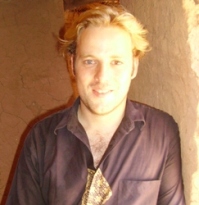Feature Story
Religion Not the Cause for Bad Behaviour
‘I bet not one of the politicians has actually been to our neighbourhood’
Although the sun does not shine, many people hang around at the Osdorpplein in Amsterdam. The square is surrounded by plenty of shops and a big indoor food market. Fountains are the midpoint of the square. Children run around the water while their parents sit on benches talking to each other. The visitors seem to have different ethnical and religious backgrounds but the noisy kids and peaceful spectators obviously enjoy the day.
It is hard to imagine the neighbourhood has a bad image all over the country. National media report about the local crimes and integration issues only. About sixty percent of the district’s citizens are non-western. The older immigrants do not speak the Dutch language that well and the youth causes trouble during the nights. They drink and smoke outdoors while flaunting their noisy mopeds. According to some politicians, mosques and Islamic schools are the cause for bad integration in the neighbourhood.
Among the shopping public walks a young blond lady. She wears a white coat and green jeans and talks to random people passing by. Veerle (24) works for a charity foundation trying to recruit new donors. ‘The citizens in this neighbourhood are really tough to approach,’ she says. ‘Most of the older people don’t speak the Dutch language and are shy to talk to strangers. A few moslima ladies were interested in donating money but told me they were not allowed to do so. They had to ask their husbands for permission first.’ Veerle looks tired at the clock ‘two more hours to go and I’m off.’
One of the elder visitors at the Osdorpplein is Annie de Jong (79). The lady sits peaceful on a bench with her blue walker in front of her. She smokes a cigarette while watching the kids near the fountain. She clears her throat and smiles. ‘I have been living for thirty-seven years in Amsterdam now. It is a clear case there are more foreigners than there used to be but it does not bother me at all.’
A kid runs by and Madame De Jong smiles. ‘Isn’t it lovely to see all the people having fun? The little children enjoy being outside while their parents can have a chat together. I visit this square almost daily to see it.’
Madame De Jong lights up another cigarette and continues her story. ‘Most immigrants prefer to hang out with each other instead of meeting native Dutch people. Some say it is a shame but I don’t mind. I would do the same thing.’ She seems to know what she is talking about because her brother used to live in the US for decades. He had Dutch friends only. ‘They all sticked to the traditions they were used to. They found it pleasant to hang out together, talk Dutch and eat andijvie or hutspot. They did not give up their native identities. It is exactly the same with foreigners in our country.’
The bench next to us is occupied by a mother and child. The mother, Soraya (33), heard Madame De Jong talking about her brother. ‘I find it really interesting what you were saying because it makes sense.’ Soraya was born and raised in Amsterdam as a child from two Moroccan immigrants. ‘Especially my mother doesn’t speak Dutch very well. We still speak Moroccan at home and my parents don’t have too many native friends.’ Madame De Jong listens carefully while lightening a third cigarette in quick succession.
Although Soraya has lived all her life in Holland, some people still see her as a foreigner. ‘Why wouldn’t I call myself Dutch? I was born and raised here, speak the language fluently and have a job at the Hema (Dutch company).’ Her son screams at a friend near the fountains and leaves his mom’s womb to play.
Soraya does not wear a headscarf or burqa but fancy western clothes. ‘I do believe in Islam and my little boy is raised in the same way. I find it horrible to hear so many people talking about my religion as a cause for bad behaviour. Islam is not the problem.’ Madame De Jong nods and states ‘I bet not one of the politicians has actually been to our neighbourhood. They talk about it, generalize and scare people with it.’ Soraya smiles and adds, ‘of course some teenagers cause troubles at night but that has got nothing to do with religion. That’s just puberty.’
